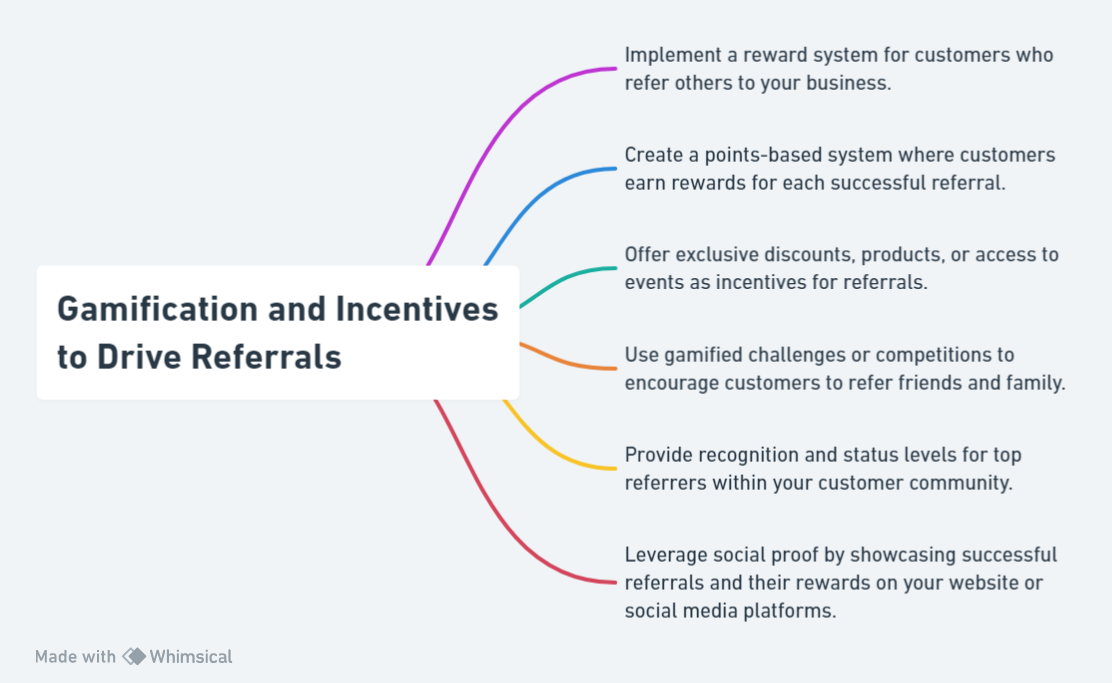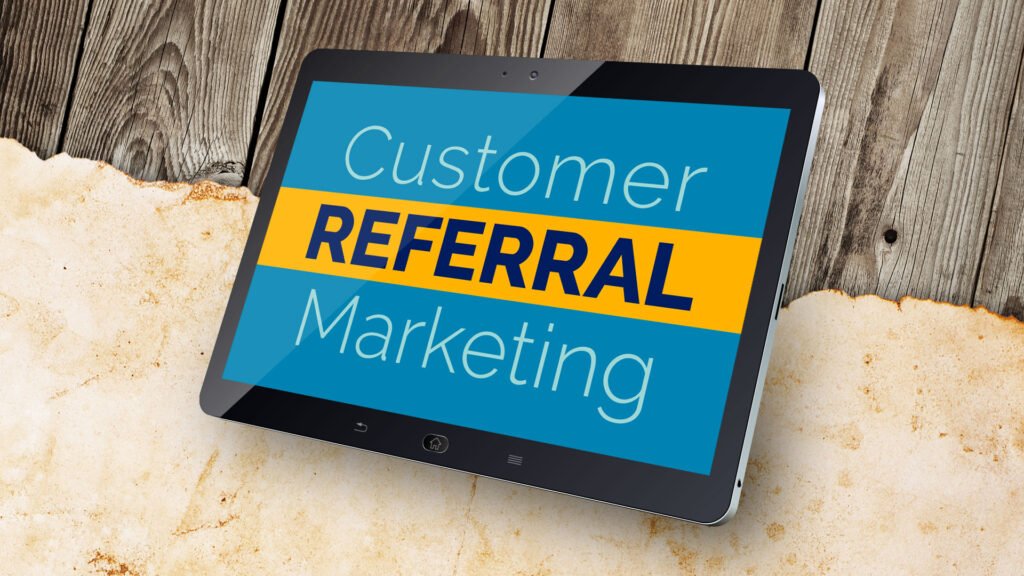Customer referral marketing is a powerful way to acquire new customers and grow your business. By incentivizing your existing customers to refer their friends and family, you can tap into a vast network of potential new leads.
Emerging Trends in Referral Technology

In the rapidly evolving landscape of digital marketing, customer referral marketing stands out as a powerful strategy to leverage word-of-mouth and harness the trust between consumers and their networks. As we dive deeper into the digital age, referral technology is witnessing significant innovations that are transforming how businesses approach customer referral marketing. Here, we explore the latest trends in referral technology that are set to redefine the future of customer referral marketing.
1. Integration of Artificial Intelligence and Machine Learning
One of the most groundbreaking trends in referral technology is the integration of Artificial Intelligence (AI) and Machine Learning (ML). These technologies are enabling smarter, more personalized referral programs. AI algorithms can analyze customer data to identify potential brand advocates and predict the most effective rewards, significantly boosting the efficacy of referral campaigns. By tailoring the customer referral marketing experience, businesses can ensure that their programs resonate on a personal level with their audience.
2. Blockchain for Transparency and Trust
Blockchain technology is making its way into referral marketing, offering an unprecedented level of transparency and trust. By recording referrals and transactions on a decentralized ledger, companies can provide both referrers and referees with clear, tamper-proof records of their interactions and rewards. This technology not only enhances the credibility of customer referral marketing programs but also streamlines the reward process, making it faster and more secure.
3. Social Media Integration
Social media platforms are increasingly becoming intertwined with referral marketing strategies. The latest referral technologies are leveraging social media integration to make sharing referrals effortless and more engaging. With features that allow users to share referral links directly on their social media profiles or through private messaging, these platforms are amplifying the reach and impact of customer referral marketing. This trend capitalizes on the natural social behaviors of users, turning social media into a powerful vehicle for referral campaigns.
4. Gamification and Interactive Elements
Adding gamification elements to referral programs is a trend that’s gaining momentum. By incorporating challenges, leaderboards, and rewards for various levels of achievement, businesses can significantly increase participation and engagement in their customer referral marketing campaigns. This approach taps into the competitive spirit and desire for achievement, making the referral process more enjoyable and engaging for customers.
5. Advanced Analytics and Reporting
Lastly, the adoption of advanced analytics and reporting tools in referral technology is enabling businesses to measure the success of their customer referral marketing programs with greater accuracy. These tools provide detailed insights into referral behaviors, campaign performance, and ROI, allowing companies to fine-tune their strategies for maximum impact. With data-driven decision-making at the forefront, businesses can optimize their referral programs to better meet the needs of their target audience.
Maximizing Offline Referral Marketing: A Guide to Success
Artificial Intelligence and Personalized Referrals

Customer referral marketing is a powerful way to acquire new customers and grow your business. By incentivizing your existing customers to refer their friends and family, you can tap into a vast network of potential new leads.
In recent years, artificial intelligence (AI) has emerged as a powerful tool for personalizing the customer referral marketing process. AI can be used to:
- Identify customers who are most likely to refer their friends and family. AI can analyze customer data to identify customers who have a high likelihood of referring new customers. These customers are typically satisfied with your products or services, have a strong relationship with your brand, and are active on social media.
- Send personalized referral messages to each customer. AI can be used to create personalized referral messages for each customer. These messages can include information about the customer’s referral history, the benefits of referring new customers, and a personalized referral link.
- Track the progress of referrals and provide updates to customers. AI can be used to track the progress of referrals and provide updates to customers. This information can help customers stay engaged in the referral process and encourage them to refer more people.
By using AI to personalize the customer referral marketing process, you can increase the effectiveness of your program and generate more new leads.
Here are some examples of how AI is being used to personalize customer referral marketing:
- Amazon uses AI to identify customers who are most likely to refer their friends and family. Amazon then sends these customers personalized referral messages that include information about their referral history, the benefits of referring new customers, and a personalized referral link.
- Uber uses AI to create personalized referral messages for each customer. These messages include information about the customer’s referral history, the benefits of referring new customers, and a personalized referral code.
- Airbnb uses AI to track the progress of referrals and provide updates to customers. This information helps customers stay engaged in the referral process and encourages them to refer more people.
If you are looking to improve the effectiveness of your customer referral marketing program, consider using AI to personalize the process. AI can help you identify your most valuable customers, send them personalized referral messages, and track the progress of referrals. By using AI, you can increase the number of new leads you generate and grow your business.
Boost Your Brand with Online Referral Marketing in 2024
Gamification and Incentives to Drive Referrals

In the dynamic world of customer referral marketing, engaging customers and motivating them to act as brand advocates requires creativity and strategic thinking. Gamification and well-structured incentives are proving to be pivotal elements in driving the success of referral programs. By integrating these components, businesses can transform their customer referral marketing efforts into an engaging, rewarding experience for their customers, fostering loyalty and encouraging a continuous cycle of referrals.
1. The Power of Gamification in Referral Programs
Gamification introduces game-like elements into non-game environments, such as customer referral marketing, to encourage participation through rewards, competition, and fun. By leveraging gamification, businesses can create a more interactive and engaging referral program that stands out.
- Levels and Milestones: Implementing levels or milestones within a referral program can significantly enhance engagement. Customers can unlock new levels and rewards as they refer more friends, which not only encourages more referrals but also adds a sense of achievement.
- Leaderboards: Incorporating leaderboards can tap into the competitive nature of customers. Seeing where they stand in comparison to others adds an element of competition, motivating them to refer more to climb up the ranks.
- Badges and Achievements: Rewarding customers with badges for different achievements within the referral program—such as referring their first customer, referring customers in different categories, or hitting referral milestones—can provide tangible symbols of accomplishment, further engaging them in the process.
2. Incentivizing Referrals: Beyond Cash Rewards
While financial incentives are common in referral programs, non-monetary incentives can also play a crucial role in enhancing customer referral marketing strategies. These incentives can cater to the intrinsic motivations of customers, such as recognition, exclusivity, or access to special benefits.
- Exclusive Access: Offering exclusive access to new products, services, or events can be a strong motivator for customers. This type of incentive appeals to customers’ desire for exclusivity and early access.
- Recognition: Featuring top referrers on your website or social media channels can provide recognition and status, serving as a powerful incentive for customers to participate in the referral program.
- Customized Rewards: Tailoring rewards to match the interests and preferences of your customers can significantly increase the appeal of your referral program. Personalization shows that you value your customers and understand their desires, making the referral process more meaningful.
3. Creating a Seamless Referral Customer Service Experience
The success of a referral program is not only about getting customers to refer friends and family but also about ensuring a seamless experience for both the referrer and the referee. Exceptional referral customer service plays a vital role in this process.
- Easy Referral Process: Ensure that the process of referring someone is as simple and straightforward as possible. A complicated process can deter potential referrals, no matter how attractive the rewards.
- Prompt Reward Fulfillment: Timely delivery of rewards is crucial in maintaining trust and satisfaction with your referral program. Delayed rewards can diminish the perceived value of participating in the program.
- Support for Referral Issues: Providing efficient customer support to address any issues or questions related to the referral program is essential. Quick and helpful customer service can enhance the overall experience and encourage continuous participation.
Scaling Your Business with Marketing Referral Software 2024
The Role of Social Media in Referral Marketing

Customer referral marketing is a powerful way to acquire new customers and grow your business. By incentivizing your existing customers to refer their friends and family, you can tap into a vast network of potential new leads.
Social media can be a powerful tool for promoting your customer referral program and generating new leads. You can use social media to:
- Share information about your referral program. Create posts on social media that explain the benefits of your referral program and how customers can participate. Include a link to your referral program landing page in your posts.
- Run contests and giveaways to encourage referrals. Host contests and giveaways on social media that encourage customers to refer their friends and family. Offer prizes that are relevant to your target audience, such as gift cards, discounts, or free products.
- Track the performance of your referral program. Use social media analytics to track the performance of your referral program. This information can help you identify what is working well and what could be improved.
Here are some examples of how businesses are using social media to promote their customer referral programs:
- Uber runs a referral program that allows customers to earn free rides by referring their friends and family. Uber promotes its referral program on social media by sharing posts that explain the benefits of the program and how to participate.
- Airbnb runs a referral program that allows customers to earn travel credits by referring their friends and family. Airbnb promotes its referral program on social media by sharing posts that feature customer testimonials and success stories.
- Dropbox runs a referral program that allows customers to earn free storage space by referring their friends and family. Dropbox promotes its referral program on social media by sharing posts that offer exclusive bonuses and rewards for referrals.
If you are looking to improve the effectiveness of your customer referral program, consider using social media to promote it. Social media can help you reach new customers, generate leads, and track the performance of your program.
Strategies for Boosting Physician Referral Marketing in 2024
Conclusion on Customer Referral Marketing
Customer referral marketing is a valuable tool for any business that wants to grow. By staying up-to-date on the latest trends in customer referral marketing, you can optimize your program and maximize your results.
Question and answer
What is the purpose of referral service?
The purpose of a referral service is to connect individuals or businesses seeking specific services or products with professionals or companies that provide those services or products. This connection is based on the referrer’s understanding of the service seeker’s needs and the service provider’s ability to fulfill those needs. Referral services are used across various industries, including healthcare, real estate, legal, and home services, among others. They aim to streamline the process of finding reliable, qualified providers, saving time and reducing uncertainty for the service seeker. In essence, referral services facilitate trust and efficiency in transactions by leveraging networks and expertise to match demand with supply.
What does a referral agent do?
A referral agent primarily connects potential clients to services or products without directly engaging in sales or transactions. They identify individuals who could benefit from a specific service or product and refer them to the appropriate provider. In return for their referral, they typically receive a commission or fee once the referred client completes a transaction with the provider. This role is common in various industries, including real estate, insurance, and financial services. Referral agents leverage their network and knowledge of the market to facilitate connections, focusing on generating leads rather than closing deals themselves.

